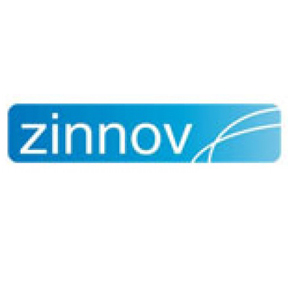![]() Zinnov, a leading Globalization and Market Expansion Advisory firm, released its latest study titled, “Top Research Faculty in Tier-1 Engineering Institutions in India”. The report contains a detailed assessment of the faculty in India’s Tier-1 engineering institutions and identifies the top faculty by major areas of research.
Zinnov, a leading Globalization and Market Expansion Advisory firm, released its latest study titled, “Top Research Faculty in Tier-1 Engineering Institutions in India”. The report contains a detailed assessment of the faculty in India’s Tier-1 engineering institutions and identifies the top faculty by major areas of research.
As per the study IISc, followed by IIT Kanpur and IIT Delhi, emerged as the top institutes for faculty research competence in India. The faculty in these institutes has the highest number of industry and government research grants (~5-6 per faculty), international and national journal references, conference publications and patents (~90 per faculty) to their credit. In addition, these top institutes have higher proportion of senior faculty members (all PhDs) with greater overall experience (average of ~20 years).
The study also unveiled that majority of faculty members in the top institutes have good international exposure both in terms of research and teaching. The faculty at IIT Kanpurhas the highest foreign university experience with ~15% of them having taught abroad and 2/3rds qualified with foreign post doctoral/PhD experience. The increased research focus and exposure was reflected in the number of awards and honors won by the faculty in these institutes. IIT Madras emerged as the overall leader in this space with ~15coveted achievements and awards (IEEE fellowship, Bhatnagar Awards etc.), 60+ international awards/ fellowships (Humboldt fellowship, MNC grants) and 40+ national awards/fellowships (e.g. Boyscast, INSA, INAE fellows).
The results of the department level analysis revealed that, the faculty scores of Computer Science Engineering department of IIT Delhi were the highest, backed by strong research expertise, high overall experience and good connects with the industry. This is reflected in the high volume of projects handled by the faculty of CSE dept. of IIT Delhi, of which (26%) of projects was done for MNC clients. The CSE department in IIT Delhi has had several renowned faculty members which include the likes of Dr. M. Balakrishnan, Dr. Huzur Saran, Dr Pankaj Jalote (who recently moved to IIIT Delhi) etc. who have several patents and publications to their credit. Security, wireless technologies and data mining are the key areas where research is driven by experienced faculty with higher than average competence in this department.
IIT Kanpur ranks top in the Mechanical Engineering discipline, driven by faculty with strong research focus and higher overall experience. In addition, key faculty members such as Dr Gautam Biswas (Humboldt fellowship, INSA, INAE fellow) and Dr Kalyanmoy Deb (IEEE fellow, Bhatnagar award) have been recipients of several international and national recognitions. The mechanical engineering departments at IIT Delhi (12%) & IIT Bombay (16%) offer significant opportunities to collaborate with close to 12% and 16% of research projects done in collaboration with MNCs. In this space, Heat Mass Transfer, CAD/CAM and Renewable Energy are the key areas where research is driven by experienced faculty with higher than average competence.
In the Electrical & Electronics Engineering and in Aerospace discipline, IISc is the leader, driven by strong research focus and overall faculty experience. While Optics, Electromagnetic interference and Antennas have emerged as top areas of faculty led research in the EEE discipline, Aerospace Structure Design and Fluid Dynamics are key research areas for Aerospace discipline of Tier 1 engineering institutes. Some industry relevant innovations in EEE include, ‘NAVA’–High speed Internet technology and ‘Aakash 4’ – ultra low-cost tablet. Similarly in the aerospace segment, there are several notable innovations including including ‘PRATHAM’ – IIT Bombay student satellite initiative, Solar powered miniature aircraft among others.
Commenting on the study, Pari Natarajan, CEO, Zinnov, said, “The quality of education that the next generation receives is significantly dependent on the exposure and knowledge that faculty can bring. Even as innovation-focused corporates look to expand their ecosystem and leverage the research expertise of India’s top engineering institutions, the study has brought out the impact that international exposure and industry collaboration can have on the nature of education imparted to our students. For India to build momentum in the engineering discipline, we must focus on creating a system where innovation is driven by a combination of industry and academia.






